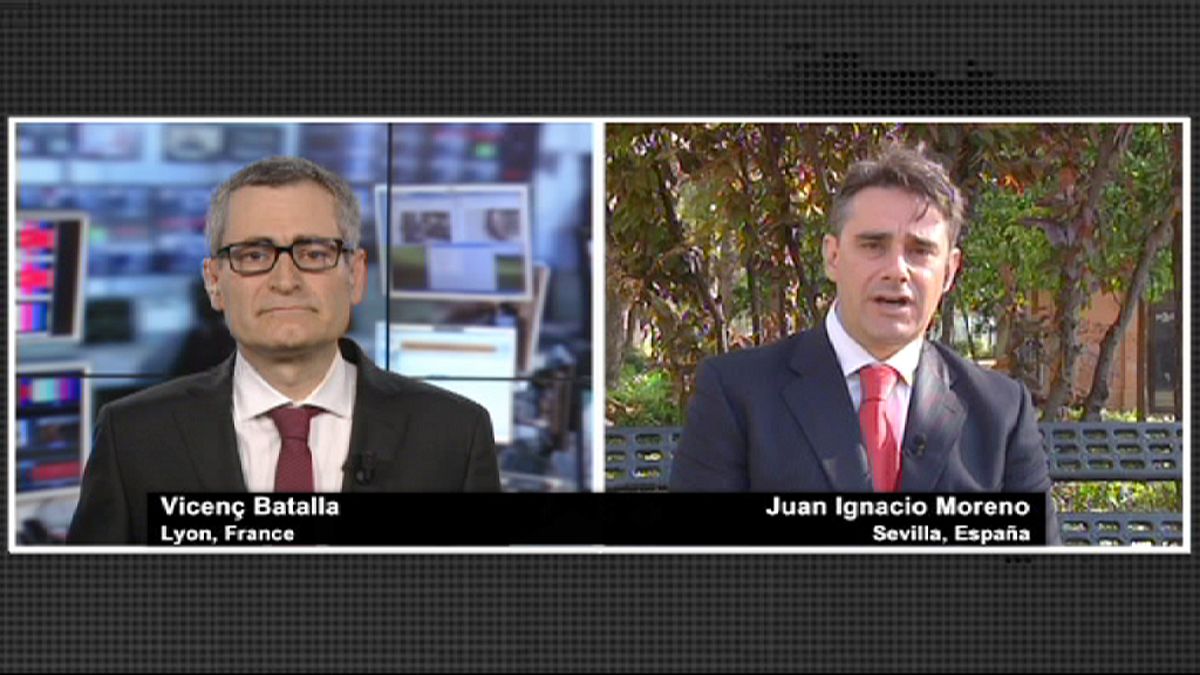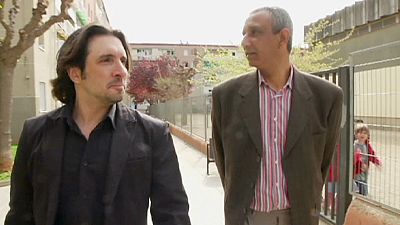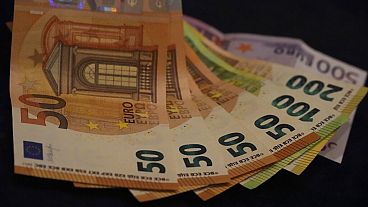Spain’s banking crisis is counting the victims – those who bought shares in the country’s three nationalised banks and who stand to lose most of their money.
The government faces an explosive response from those people who did not understand what they were being sold.
They were ‘duped’, they say, into buying what were called ‘preferential shares’. They will lose up to 70 percent of their investments as part of a European rescue. Now hundreds of thousands of ordinary Spaniards are desperately trying to recover their money from Caja Madrid/Bankia.
Pensioner Miguel Angel Santos said: “Together, all the members of my family had 350,000 euros. The bank told us about a special five-year deposit which would pay us seven percent, guaranteed by Caja Madrid.”
More than 400,000 clients of several banks were convinced to ‘invest’ some eight billion euros. In Bankia alone 300,000 of them represented almost five billion euros, placed at high risk. NovaGalicia Banco and CatalunyaBanc persuaded in excess of another 100,000 people to go along with the scheme.
Preferential shareholder Agustin Calvo, age 59, a Caja Madrid client for the past ten years, entrusted it with almost everything he had. His branch manager phoned him in person to propose a special offer.
Calvo said: “The director herself told us about it when it was introduced in 2009. At that time our money was in a fixed interest savings account, completely safe. She called us at home to suggest we could take it out of there with no penalty and put it into a ‘preferential participation’ fund, but she didn’t sell it as a shareholding, which is what it really was.
“The bank offered us this for a five-year term, to end in August 2014. That’s how she presented the thing. The bank never told us about the risk of this product, which was huge. In reality, what she proposed was that our resources, money that belonged to us, would become preferential shares that were officially part of the bank, as soon as we signed. You’ve lost that money! It’s the biggest betrayal of confidence, this swindle.”
Like others in the same bind, Calvo holds former Bankia president Rodrigo Rato responsible. His actions, far from preserving the clients’ money, put it even further out of reach.
Calvo said: “I have to say that I trusted him in the beginning. He had been a minister in the Aznar government and director of the International Monetary Fund, but he did everything wrong. If Bankia’s viability was in doubt when seven or eight savings banks – Caja Madrid among them – were merged, then he shouldn’t have done it. Listing Bankia on the stock market caused harm, and in spite of everything he was rewarded with an extremely well-paying job at
Telefónica.”
Calvo will not take part in the arbitration proposed by the Spanish government. To him it doubles the fraud. He’ll be taking his case to court to try to get his money back.
Euronews spoke to Juan Ignacio Moreno, a lawyer representing the 15-M movement the so called ‘indignados’ who are suing the former directors of Bankia.
Vicenç Batalla, euronews: “Bankia is the bank that is most affected by the problem of so-called toxic products in Spain, but the scandal also includes Novagalicia and CatalunyaBanc. Was this the fault of the former directors of these savings banks – the cajas – that were merged to form these banks?”
Juan Ignacio Moreno: “Yes, totally and absolutely. Because they came up with this product that was highly speculative and too complex for small savers [to understand]. It’s one thing to offer this to institutional [professional] investors, but Bankia took advantage of its branch network and the trust its savers placed in it to make major changes to their deposits, their savings, and the bank’s capital. They continued to sell those products and the management gave orders that they should presented as if they were long-term deposits, that could be easily cashed in. The bosses of those companies created this concept, the strategy, the type of contract and, especially, the means of gaining control of their customers’ savings.”
Euronews: “Recently, Spain’s financial regulator, admitted that those preferred shares were sold at too high a price. Could those sales be annuled and what consequences would that have for Spain’s bank restructuring?”
Moreno: “The regulator’s report on Bankia and the two savings banks that were folded into it – Caja Madrid and Bancaja – analysed 65,000 transactions between August 2010 and November 2011 and said that none of the legal rules were complied with. They ran a PARALLEL computer system that “simulated” market movements. The share price was totally manipulated. The regulator said that a reasonable price based on what the (former boss) Rodrigo Rato didn’t reveal would have been twenty percent less, but Bankia continued to sell the shares at the original price.
“With regard to the bank restructuring that the government is doing with its banking bailout and reconstruction programme, it’s clear that the only solution is to use what remains of 100 billion euros from Brussels and return money to the people who were victims of this scam.”
Euronews: “The most well known of the former managers is Rodrigo Rato, former chairman of Bankia and former head of the International Monetary Fund. He appeared in court in December as a defendant in this case. How is that going legal process going to end?”
Moreno: “Currently, with the regulators report – which is pretty much the equivalent of a driver testing positive for drunk driving – then it’s likely there’ll be a guilty verdict followed by a sentence.
“Spain’s highest financial authority established that prices were manipulated to increase the bank’s capital by one point two billion euros. Customers were defrauded in creating these shares. It is a crime that is proven by the documents, regardless of what the accused might think or say.”
Euronews: “Mariano Rajoy’s government has tried to reduce the political impact by negotiating with Brussels for reduced losses [by the small investors] and setting up an arbitration process. Is that enough?”
Moreno: “It’s clearly not enough. I guess the government feels guilty, and Brussels, wasn’t told about the criminal way these toxic products were sold. I suppose that the the government’s conscience was pricked, which was the only reason it is giving back a little bit of money. Otherwise, its behavior is incomprehensible. The government knows that eventually the evidence presented to the court will mean all the purchase contracts will have to be cancelled and all the money returned.
“The problem is that it will be difficult for the government and the former bosses to deny responsibility. All the indications are that they were all aware of what was going on.”



